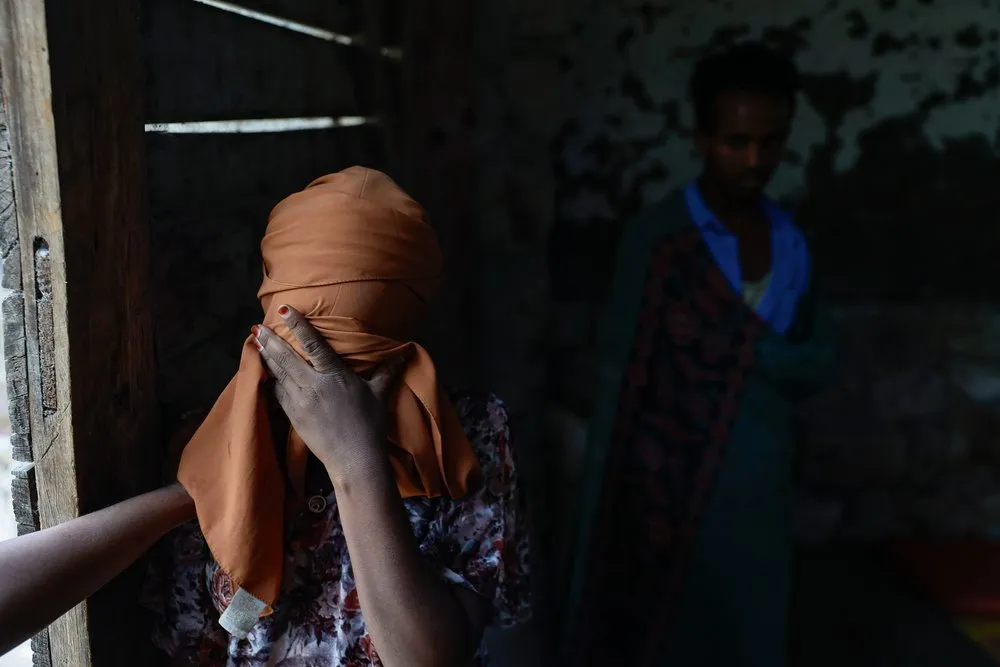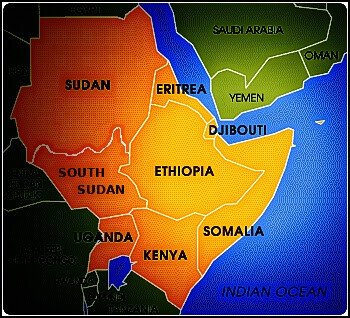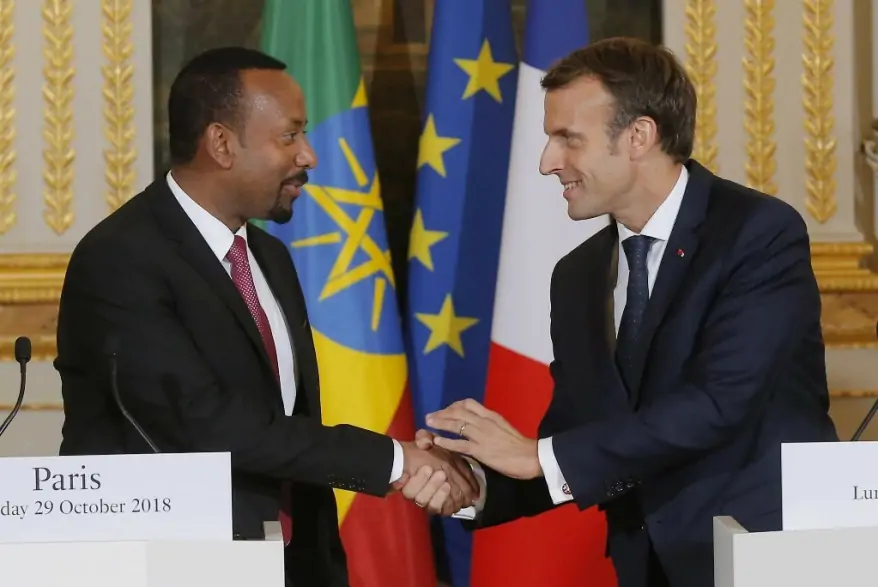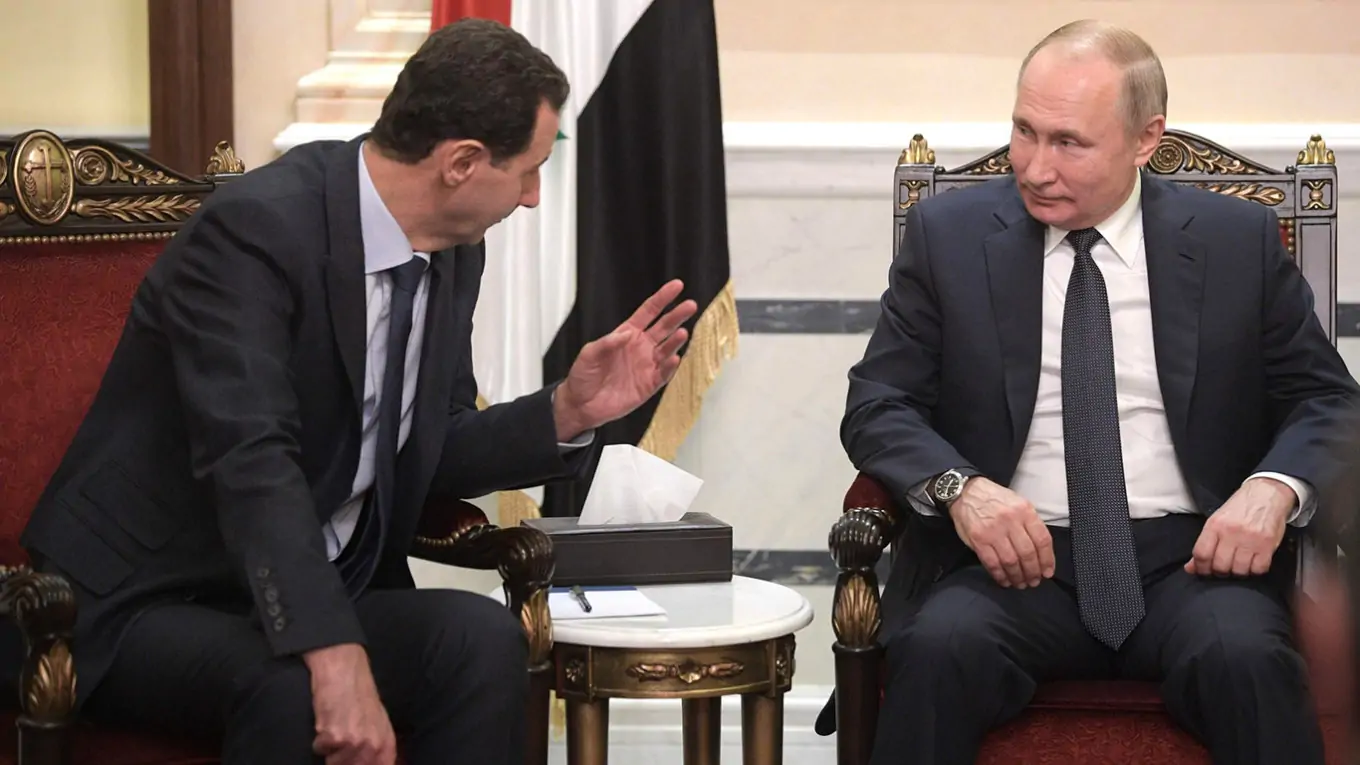Messay Kebede
While I found many interesting and thought-provoking points in Jawar’s interview, I could not dismiss the uneasiness I felt all along my reading. At first, I did not see the reason for the uneasiness, but as my reading advanced, it gradually surfaced. It has to do with the manner Jawar opposes concepts, like multicultural unitary state versus multinational federalism versus democracy and national unity, without, however, operating a synthesis or making a choice. He forcefully analyzes the oppositions and lays down their impacts. But, to my amazement, he leaves us hanging, without even a hint of hope as to their resolution in the near future or even in the long run. True, he proposes what he considers to be a solution, namely, the notion of “progressive patriotism,” which unfortunately looks misplaced in that it collides with the very essence of ethnonationalism. In other words, the good things that he says about ethnonationalism and the various, good or bad, political forms it can take did not sit well with his commitment to democracy and national unity. In the end, the reading of the interview draws the portrait of an activist torn between incompatible commitments and yet refusing to abandon any of them. Let us corroborate the portrait with arguments taken directly from the interview.
The opposition between multicultural unitary state and multinational federalism
By the concept of “multicultural unitary state,” Jawar designates a state that manages “diversity short of granting administrative autonomy because the constituent groups lack distinct ethnocultural and territorial existence or do not demand so.” By contrast, multinational federalism “accepts not just cultural diversity, but also the existence of multiple political communities entitled to autonomous self-administration.” The TPLF’s constitution, still in effect in Ethiopia, is an almost perfect example of multinational federalism. As to multicultural unitary state, although Jawar does not provide examples, he gives us an idea by pointing in the direction that Prosperity Party wants to take Ethiopia, to wit, the full acceptance of cultural pluralism and the adoption of inclusive policy but in the framework of a unitary state. While the multicultural state integrates cultural pluralism without going to the extent of granting administrative autonomy to the cultural groups, multinational federalism goes further in the acceptance of pluralism by elevating the cultural groups to the level of autonomous political communities, that is, to the level of nations, while retaining the intention of keeping them in one country.
Multinational federalism and multicultural unitary state have both their own downsides. As could be expected, the rejection of autonomy and the emphasis on unity put a multicultural unitary state on the dangerous path of a centralized political system that is inimical to the progress of democracy. Moreover, as the recognized cultural diversity tends to move in the direction of increased politicization, if only as a protest against centralization, it evolves towards the formation of “ethnolinguistic groups” as “distinct political communities” with their demand for autonomous political status. According to Jawar, present-day Ethiopia has reached this level of ethnic politicization: the compulsion to keep diversity under one unitary state brought about the evolution of ethnicity towards ethnonationalism and the attendant danger to national unity.
When this level of politicization is reached, the only way out to ward off disintegration is the adoption of multinational federalism. To the extent that federalism recognizes distinct ethnic territories with their right to self-rule, it does seem to provide the right solution, except that it ends up undermining national unity. In the words of Jawar, “it has to be acknowledged that drawing administrative boundaries or organizing political parties along tribal/ethnic/religious lines is not the ideal approach to building a cohesive state and society.” Nevertheless, though not ideal, ethnonationalism has irreversible consequences. Once it grips the mind of people, there is no going back to a unitary state. As Jawar puts it, “fueled with heightened nationalism and equipped with state structure for mobilization and coordination, groups are in a much stronger position than ever to resist any attempt to re-centralize the state or even redraw borders.” The impossibility of recentralization gives no other choice than to try to mitigate by targeted reforms some of the most detrimental aspects to national cohesion.
In this regard, the change of direction of the Prosperity Party provides an instructive lesson. Both to distance itself from the unpopular policy of the TPLF and to counter the threat of ethnonationalism to national unity, Prime Minister Abiy modified the EPRDF into “a single party.” He had previously laid the ground for the modification by promoting “‘Ethiopianism,’ hinting at a desire to bring back the unitary nation-state.” Far from weakening ethnonationalism, the move strengthened its polarizing effect to the point of “culminating in deadly wars in Oromia and Tigray.” Facing the danger of losing its grip on power, the party changed course: it dropped the rhetoric of a unitary state and began to promote multiculturalism, but stopped short of going in the direction of multinational federalism.
On the Irreversibility of Ethnonationalism
There is no doubt that, unlike many apologists of the Ethiopian current constitution, Jawar is fully aware of the danger of ethnonationalism to national unity. He seems to be tormented by a secret doubt, the very one that asks whether sacrificing Ethiopian unity for ethnonationalism is worthwhile, especially when one has the alternative of supporting the less dangerous option of multiculturalism. However, as we just show, Jawar argues for the impossibility of returning to multiculturalism once people have lived under multinational federalism. The little we can do is to try to temper its polarizing effect with some limited but pointed reforms.
As far as I am concerned, I do not buy the argument that people who lived under multinational federalism cannot move away from it. Not only is the argument the only one that Jawar proposes, but it is also a fatalistic position that overlooks the dynamics inherent in social systems. Since institutions and cultural beliefs are all products of social constructions, they are all historically acquired and, as such, subject to change. Nothing in society is naturally fixed, or static; on the contrary, human history amply shows that people abandon previous beliefs and espouse new ones; otherwise, there would not be any social change. As ethnonationalism is the product of specific historical conditions, different conditions can either remove it or alter it. Remember how quickly the worldwide popularity of socialism and Marxism-Leninism from the 50s to the mid-80s dissipated subsequent to Eastern Europe’s disenchantment, mostly caused by frustrations over economic performances, with the ideology. In the same vein, many Oromos, who were previously Ethiopiannist, have turned into advocates of ethnonationalism, while others are still faithful to their original belief, despite the tremendous pressure on them.
We witness here Jawar’s unwillingness to follow his own analysis: he is fully aware of the danger of ethnonationalism and at the same time he is attached to national unity. Yet, instead of finding an alternative solution, he comes up with a fatalistic argument that smacks of primordialism, all the more regrettably because Jawar understands the recourse to ethnonationalism in instrumentalist terms, that is, as a reaction to past mistreatments and unmet demands. If ethnonationalism is a reaction and not a natural trait, then there is no justification for appealing to a deterministic position defending its irrevocability. As upbringing and indoctrination introduced it in the first place, a sustained deprogramming towards inclusiveness can operate a synthesis between national and ethnic identities.
Wars in Oromia and Tigray
According to Jawar, the eruption of war in Oromia and Tigray is a reaction to Abiy’s attempt to create a unitary state. Is this explanation really feasible? As vindicated precisely by PP’s slow move from its original multiculturalism––in conformity with medemerideology––to ethnonationalism, the change occurred not so much because elites in Oromia feared the demise of multiculturalism but because Abiy did not advance their hegemonic aspiration over Ethiopia. All things considered, the violent conflicts in Oromia between the government and armed groups, rather than being over pluralism, which, everybody knows, has never been in real danger, boil down to the power struggle between Oromia elites over the control of power.
As to Tigray, the motivating factor of power struggle is even more pronounced. For, can one seriously maintain that the bloody war that lasted two years was over pluralism? Was it not rather caused by the TPLF’s bitterness for having lost the control of the federal government and its resolution to regain it? To ascribe the eruption of the war to the imperative of protecting pluralism simply obscures the difference between pluralism and ethnonationalism. While the former is a legitimate commitment to one’s identity and equal treatment, ethnonationalism is a radical position that either aspires to conquer a domineering political position or harbors a secessionist goal. The unquestionable truth is that ethnonationalism fueled the TPLF from the get-go, which was also the case with the OLF and the Ogaden National Liberation Front. Let us face it: the quest for or resistance to hegemony is behind all of Ethiopia’s internal wars, including the ongoing war of resistance in the Amhara region.
What, then, explains the creeping move of the PP from multiculturalism to ethnonationalism? One thing is sure: a necessary condition for the implementation of multiculturalism is the allegiance of the state to democratic principles. Otherwise, it will take the path of ethnonationalism, which is precisely the direction that Ethiopia took because of the undemocratic nature of the state. In light of this, Abiy’s shift from multiculturalism to ethnonationalism acquires a different explanation. From the start, his multicultural and democratic stand was just a phase that he needed to distance himself from the unpopularity of the TPLF and gather wide support, especially from the Amhara region and elites, and thus gain time to consolidate his power. With the military defeat of the TPLF, the only real threat to his power, a different condition suitable for his dictatorial cravings had emerged. He accordingly saw that the best way to neutralize the growing confidence of the Amhara region, confidence springing from its decisive contribution to the defeat of the TPLF, was to revive and utilize for his benefit the resentment and the competing nationalism of Oromo elites to finally consolidate his power and achieve absolutism. He knew that most Oromo elites would excuse his deviation from the democratic path so long as it targeted Amara competition and Ethiopianism, thereby laying the ground for Oromo hegemony over Ethiopia.
The provided explanation differs notably from the one that Jawar suggests. According to him, the PP backtracked from multiculturalism and unitary state because of the breakup of “the war coalition” after the Pretoria agreement, which created the need for “a new support base to compensate for the loss of the unitarist constituency.” The known truth, however, is that Abiy’s decision to disarm Fano and Amhara militia forces, once the TPLF was defeated, caused the breakup. The decision reflected Abiy’s and Oromo PP’s anxiety over the growing importance of the Amhara region, which in addition to its shining contribution to the defeat, had reconquered rich lands previously taken by force by the TPLF. As to the need to find a new support base, it does not say something different from the previous reason: it is always about the threat of Amhara competition now that the TPLF has been sidelined.
More importantly, the shift has little to do with Jawar’s additional explanation according to which it was necessary to neutralize “the rhetoric of a unitary state that previously alienated ethnonationalist constituencies.” Since the main reason for the wars in Oromia and Tigray is power struggle, given that nothing serious endangered multicultural policies in Ethiopia, the hard truth is that multiculturalism does not satisfy regional elites harboring a hegemonic goal, like those in Oromia, Tigray, and Amhara region. Jawar’s blind spot is precisely this refusal to see the inherently hegemonic motive of ethnonationalism and its antidemocratic nature deriving from its desire to attain political absolutism.
Jawar admits that “a democratic state can bestow ethnic groups with real autonomy and constrain the center against its excesses.” Why, then, does one shun from taking the democratic path, why does one appeal to ethnonationalism if a democratic system can achieve the same result? The admission delegitimizes the Woyanne constitution and shows that it was conceived and implemented for the sole purpose of achieving and institutionalizing absolute power. For the same reason, those disciples who replaced the TPLF adopted and protected the constitution. To say it again, its main attraction is the enabling of authoritarianism and an exercise of power based on the system of divide-and-rule. Ethnonationalism is not, as Jawar claims, an outgrowth of frustrations over the limitations of multiculturalism: it presupposes the active intervention of elites motivated by the quest for absolute power.
Multinational Federalism and Progressive Patriotism
Rather than pondering on the antidemocratic nature of multinational federalism, Jawar is keen to denounce the inevitable drift of multiculturalism towards a unitary state, which, he says, angers ethnic constituencies because it does not grant them self-rule in a defined and protected region. But he also warns us that the recognition of self-rule to autonomous ethnic regions comes at the expense of national cohesion. The dilemma is therefore clear: in the face of the threat to national unity, the state either resorts to centralization and authoritarianism to counter the danger or to further concessions to ethnic communities with the hope of stopping the drift towards national disintegration. In both cases, the outcome can only be the exasperation of identity politics with no prospect other than the dissolution of the state, not to mention the high probability of the outbreak of civil war.
Because Jawar knows that the dilemma has no good outcome, he suggests a solution that neither advocates the recourse to authoritarianism, which does not work, nor indulges in appeasement with further nationalist concessions, whose effect is to make the demise of the state inevitable. This all-solving solution is the notion of “progressive patriotism,”: it “aims to balance the aspiration for progressive change with the sense of loyalty to the state.” What immediately jumps to mind with the suggested solution is the question of knowing how the notion can inculcate loyalty to the state even as its cultural and socioeconomic base promotes loyalty to ethnic groups. Given the fact that ethnonationalism is already a radical position, how does it reconcile with Jawar’s appeal to “moderation”? Is it not plain that the latter requires the abandonment of ethnonationalism in favor of multiculturalism?
Our previous attempt to show that the argument of irreversibility does not hold water further strengthens the conviction that Jawar’s suggested remedy is nothing more than an injunction to return to multiculturalism. The only issue that remains is the specification of the conditions necessary to effect the return. Fortunately, history provides us with examples that can guide our attempt to clarify the necessary conditions. In fact, Jawar himself has already indicated the direction when he told us that, although a multicultural unitary state can accommodate diversity, the fact that it does so in the framework of a unitary state limits its ability to satisfy ethnic groups. Consequently, despite legitimate misgivings, the state has no other choice than to mutate into multinational federalism to meet their demands.
Now, if instead of taking the extreme form of multinationalism, multiculturalism gives up its unitary structure to satisfy the requirements of democracy, it should be in a position to answer all the reasonable demands of ethnic communities. Concrete examples substantiate the ability of democratic multiculturalism to cope successfully with pluralism and thus maintain the integrity of national unity. Take the case of India, Canada, Switzerland, or Belgium: their political systems correspond neither to what is known as a nation-state nor to a mere collection of autonomous sovereign entities, as the Ethiopian constitution stipulates. Whereas nationalism in a nation-state revolves around the dominant position of one ethnic group, the political system of the mentioned countries is inclusive of diversity and, for that reason, the resulting loyalty is better defined as “civic nationalism” or “democratic nationalism.” In other words, the nationalism in question is not ethnic; it is rooted in the democratic values that make the state inclusive. This value-based commitment erects an umbrella state, that is, the common home that different ethnic groups built to manage their union in the spirit of fairness and equality.
Jawar’s notion of progressive patriotism either means the advent of a democratic state in Ethiopia or it is a notion peculiar to multinational federalism, in which case the expected moderation and loyalty to the state is unachievable. Accordingly, the discrepancy between the two paths obliges one to decide for one of the two. Assuming that ethnonationalism does gratify ethnic demands, in addition to being undemocratic, it is unable to correct its corrosive effects on national unity; multiculturalism refuses to go as far as ceding political autonomy to ethnic groups, but it compensates its refusal by guaranteeing justice and equality thanks to the inclusive nature of an umbrella state, while also removing the threat to national unity. Of the two alternatives, the reasonable one is fairly obvious. While clearly what Ethiopia needs is civic or democratic nationalism, the reason why Jawar proposes progressive patriotism rather than plain liberal democracy should not elude us any further. Being loaded with leftist political romanticizations, the term “progressive” seems to be more acceptable to Oromo elites. Yet, what is more progressive than true democracy? Needless to say, Abiy’s regime is congenitally incapable of implementing democratic changes to correct the structural derailments of the multiculturalism it claims to follow.


















I see Jawar talking right in his latest writing. It shows me he has learned lot from his past involvement and experience. That is a good thing. But I am not sure how he can sway or convince those in the bushes to lay down their arms and wage peace. I remember he was part of elders who tried that before the Zanzibar weekend concert. The armed gang leaders had made it very clear to him and the elders that they will not lay down their guns for no less than a referendum in Oromia that should found a separate state. They call that ‘self determination’. The author of this piece should know a thing or two about ‘self determination including up to secession’. Also, both armed groups in Amhara and Oromia claim the reason they took to the bushes is to protect citizens of their ethnicities in their regions. So, how can Jawar and others convince such armed groups hell bent on violent form of struggle? I would like to see Jawar and this author get together and tell us how. I also would like them to tell us how they will convince the drone-toting government officials to sue for peace. I will be patiently waiting.
Meanwhile, I commend the author for posting this piece and encourage him to keep writing. Blessings!!!
Why is the struggle for power so bad thing? After all, how is a group or a community to rule itself without political power? Multi-culturalism as it is being proposed here will push the cultures of the a large segment of the society to the remote corners of the country or be celebrated once a year in some urban areas where they are tolerated as a nuisance. This comes from not understanding the passion for these demands. If you want to keep Ethiopia, then you should be ready to get rid of all the symbols of the Empire State of Ethiopia.
Great insight as usual. Hopefully, the few with commonsense in PP will muster the wherewithal to discuss both gentlemens’ viewpoints.
Not an opportunity to be wasted.
The PP government is beyond discussion and new ideas. Abiy is fully engaged in armed solutions. To maintain power and keep till Domesday he has to kill and look after his floor garden. All peace loving citizens or nationalist has to think solutions in terms of the enemy bullets.